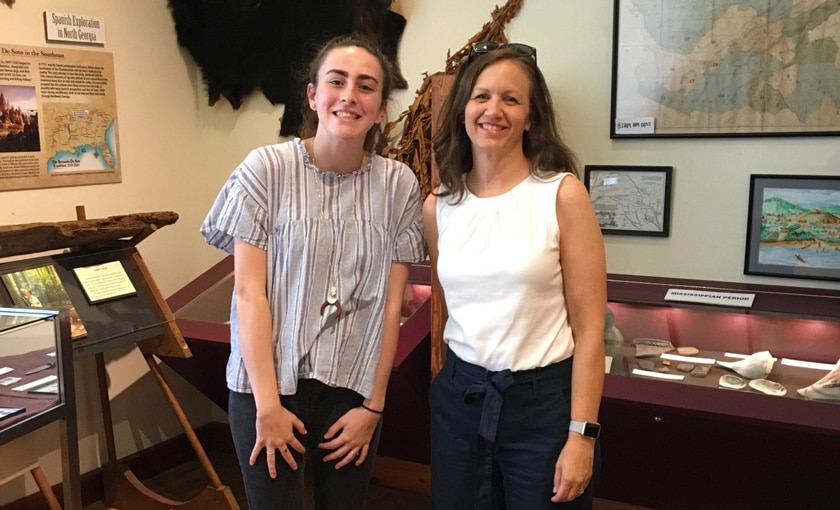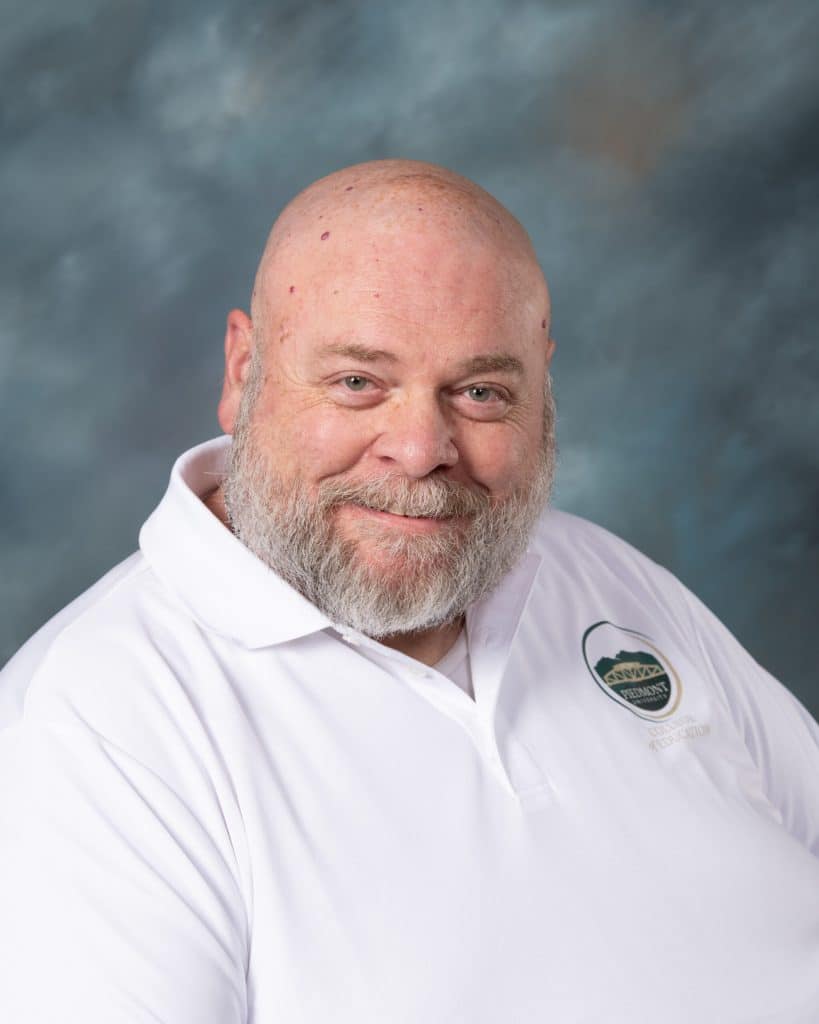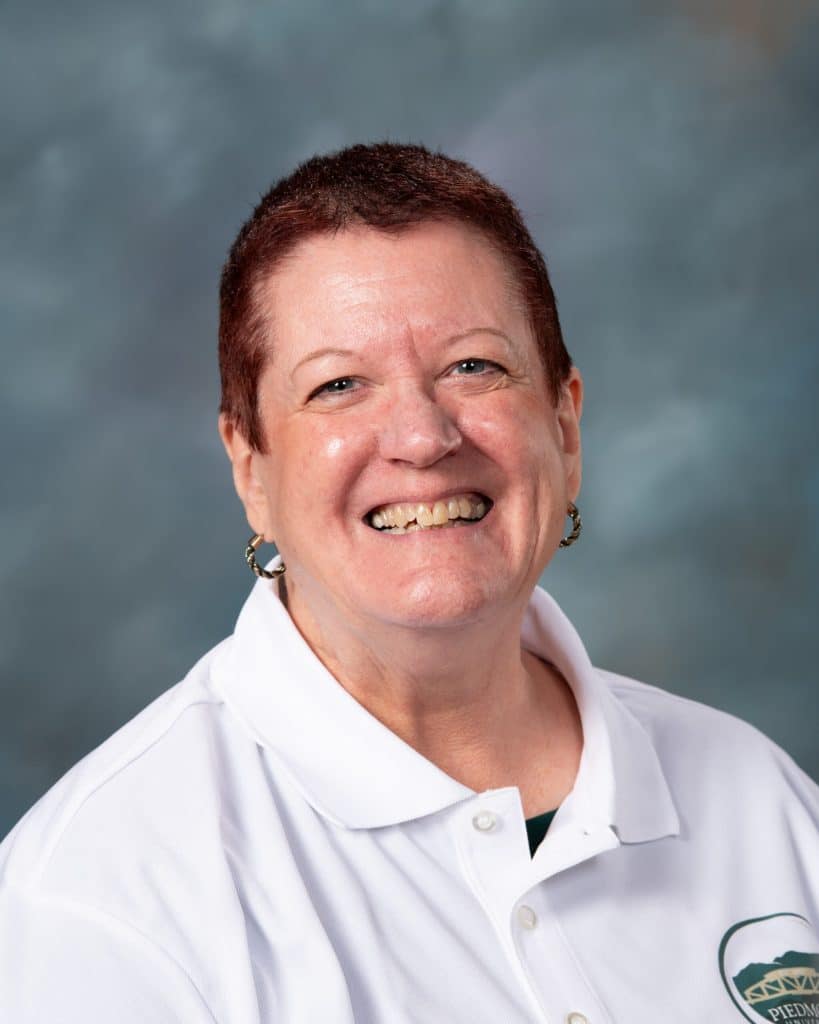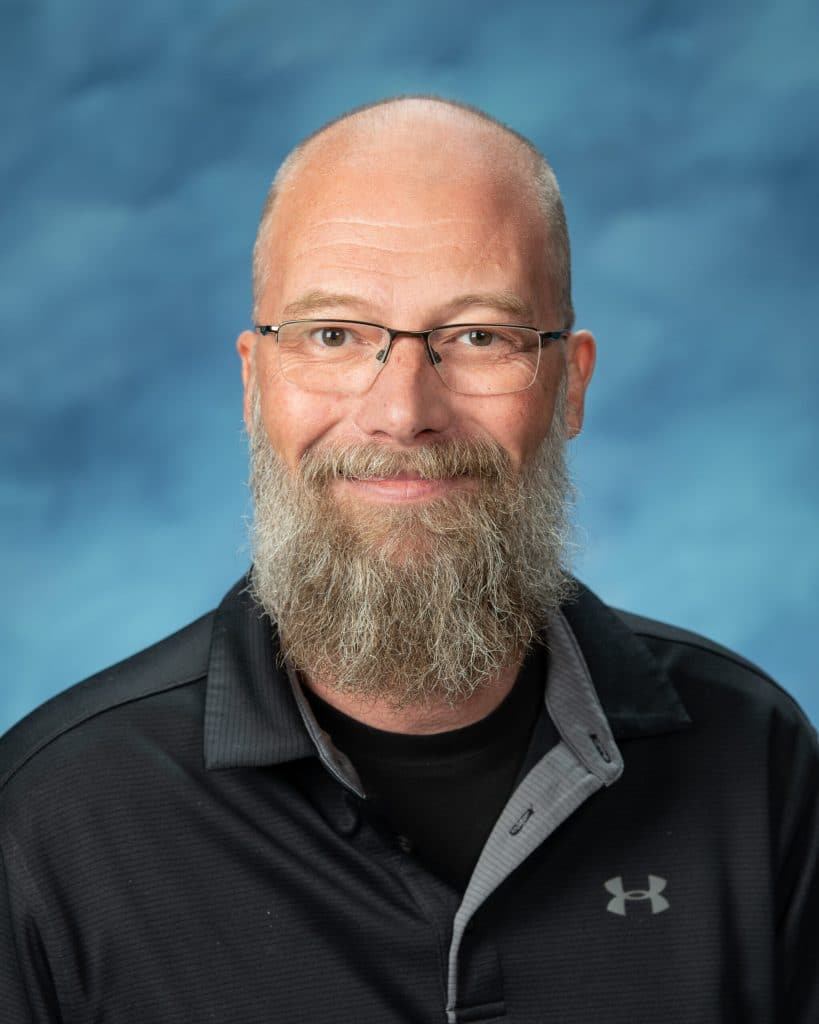Secondary Education
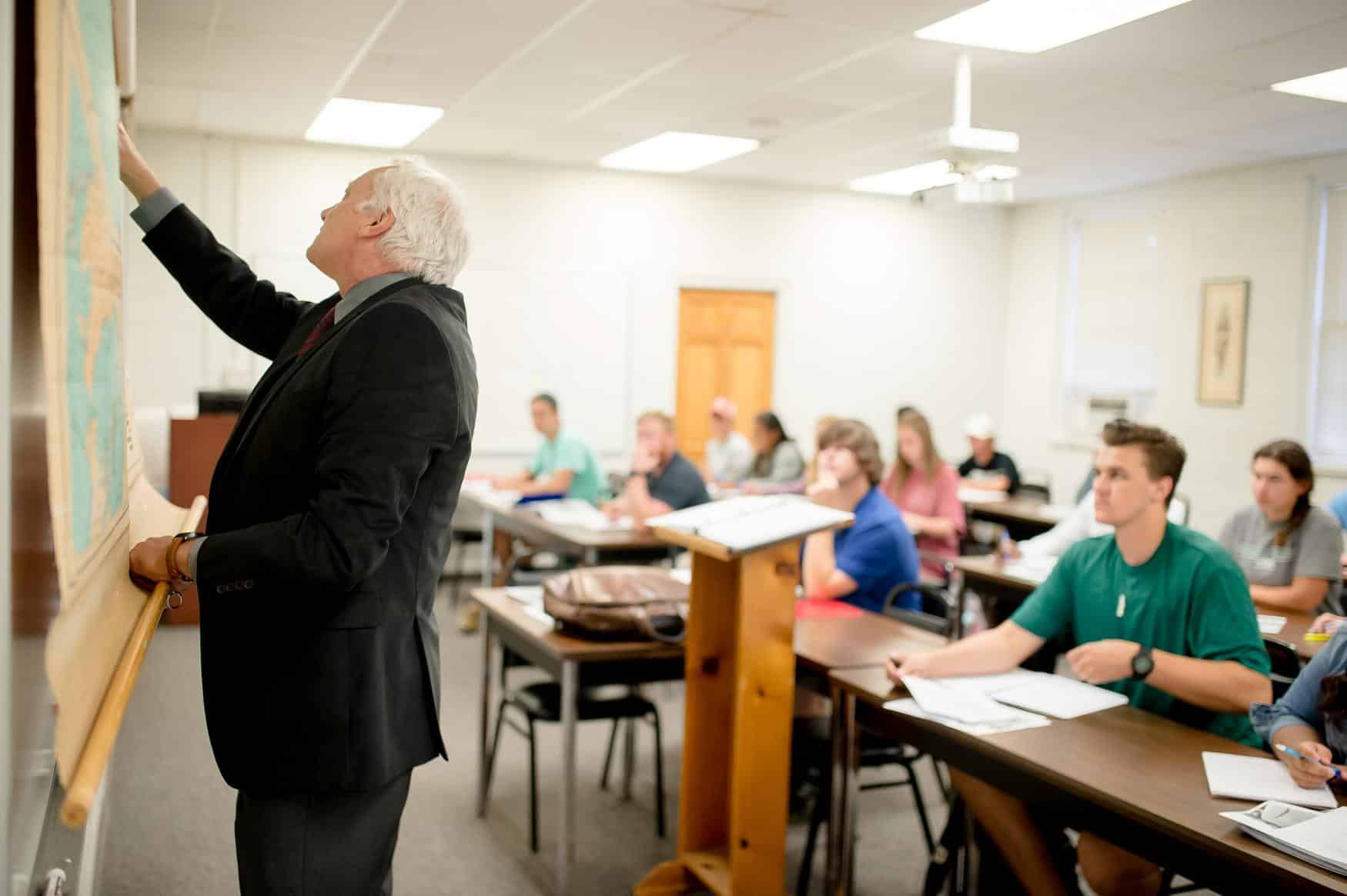
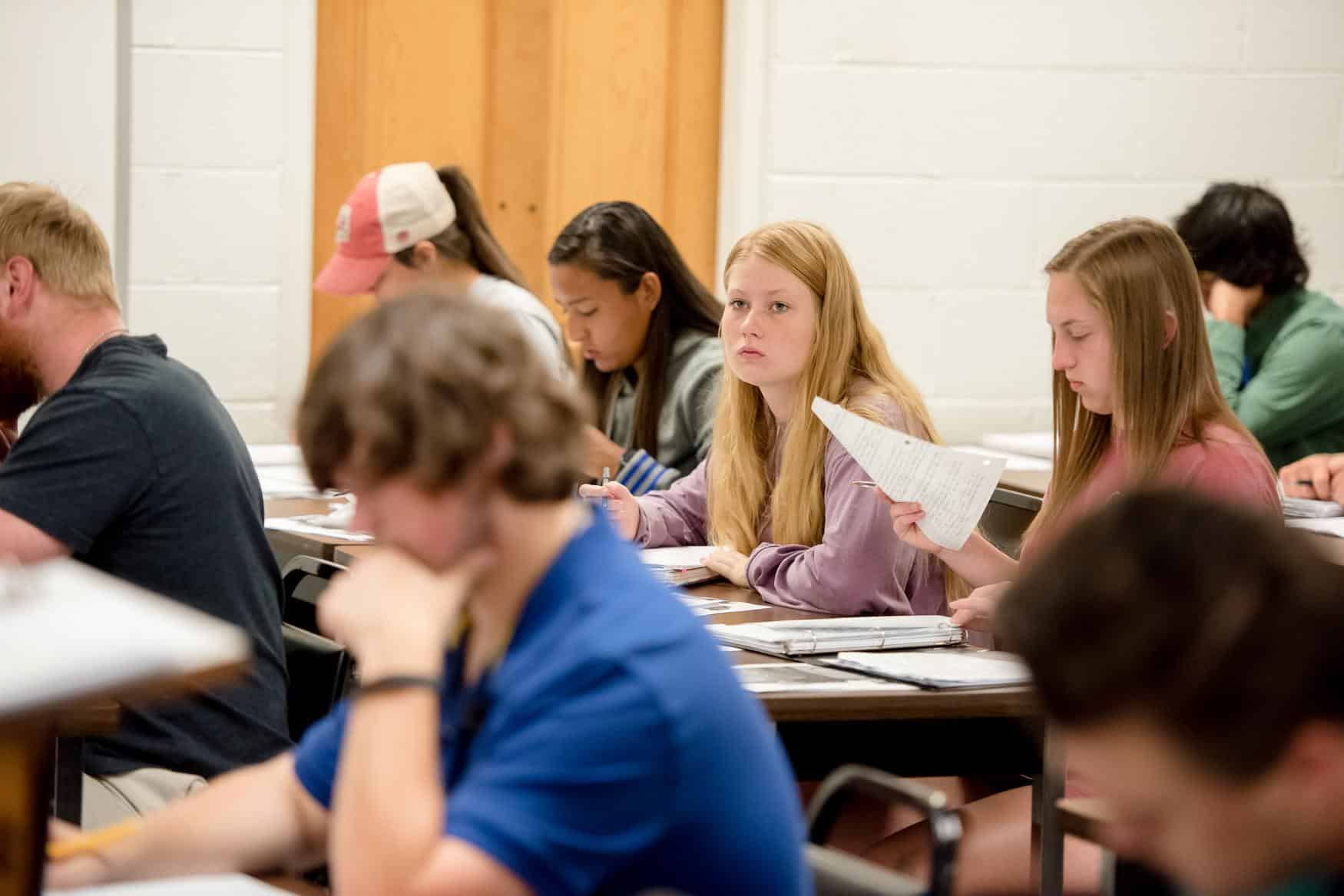
Why Pursue Secondary Education?
The Bachelor of Arts (BA) degree program in Secondary Education prepares candidates to teach at the high school level and leads to Georgia certification in secondary education (6-12).
The teacher preparation program in Secondary Education combines course work and field experiences, culminating in a yearlong school experience that is comprised of two apprenticeship semesters. Experienced faculty and educators in local schools work collaboratively to provide candidates with the knowledge, strategies, and real-world experiences that prepare them to teach in 21st century high schools.
Students may wish to pursue the degree in Secondary Education in one of the following content areas:
- Biology
- Chemistry
- English/Language Arts
- History
- Mathematics
The BA degree program in Secondary Education is a joint program with the College of Arts and Sciences. Students are assigned a faculty advisor in the chosen content field and also within the College of Education. In addition to course work in the liberal arts and sciences and the chosen content teaching field, students also complete courses in teaching and learning and teaching methodology. To enhance their marketability, candidates may also elect a sequence of three courses to earn in-field endorsement in Gifted Education.
Candidates must apply for and be admitted to Teacher Education, complete the Education Teacher Performance Assessment (edTPA), and pass the Georgia Assessments for the Certification of Educators (GACE) content exams in their chosen content field.
Given the number of credit hours required in both education courses and in the content field, an additional semester may be necessary to complete course work and the apprenticeship.
Dual degree option. Some students interested in secondary education may also opt to work toward the BA degree in the chosen content field and then continue on at Piedmont to obtain the Master of Arts in Teaching degree in secondary education. Additional information can be found in the Piedmont University catalog.

How a Piedmont Secondary Education Degree Helps You
A degree in secondary education prepares you to teach and mentor students in grades 6–12 by equipping you with subject-specific expertise, classroom management strategies, and adolescent development knowledge. It also opens doors to careers in teaching, curriculum development, educational leadership, and youth-focused programs.
- Learn techniques for teaching young adults, including specialization in including biology, chemistry, English/language arts, history, or mathematics.
- Enhance your qualifications by electing to complete Piedmont’s in-field endorsement in Gifted Education.
- Begin work on a dual degree option by earning your BA and then continuing at Piedmont for your Master of Arts in teaching.
- Be qualified for a career that faces a shortage of candidates statewide.
Degree Paths
Biology Foundations
| BIOL 1101 | General Biology I | 3 |
| BLAB 1101 | General Biology Lab I | 1 |
| BIOL 1102 | General Biology II | 3 |
| BLAB 1102 | General Biology Lab II | 1 |
| BIOL 2240 | Genetics | 4 |
| NASC 3990 | Philosophy and Methodology of Science | 3 |
| CHEM 1101 | General Chemistry I | 3 |
| CLAB 1101 | General Chemistry Lab I | 1 |
| CHEM 1102 | General Chemistry II | 3 |
| CLAB 1102 | General Chemistry Lab II | 1 |
| ENVS 2070 | Environmental Science | 3 |
| CHOOSE ONE: | ||
| BIOL 3500 | Vertebrate Natural History | 4 |
| BIOL 4200 | Invertebrate Zoology | 4 |
| CHOOSE ONE: | ||
| BIOL 3650 | Comparative Physiology | 3 |
| BIOL 3700 | Animal Behavior | 3 |
| CHOOSE ONE: | ||
| BIOL 4500 | Organic Evolution | 4 |
| BIOL 4700 | Ecology | 4 |
| Total Credit Hours: | 39 |
Teacher Certification
| EDUC 1199 | Introduction to Education | 3 |
| EDUC 2250 | Media and Technology for Educators | 3 |
| EDUC 2251 | Professional Practice I | 1 |
| EDUC 3111 | Professional Practice II | 1 |
| EDUC 3151 | Professional Practice III | 1 |
| EDUC 3355 | Exceptional Children | 3 |
| EDUC 4497 | Classroom Management | 3 |
| EDSE 3301 | Methods in Secondary Education | 3 |
| EDSE 3335 | Science Methods, 6-12 | 3 |
| ENGL 4440 | Reading and Writing in the Content Areas | 3 |
| PSYC 3311 | Psychology of Adolescence | 3 |
| Total Credit Hours: | 27 |
Apprenticeship Sequence
| EDSE 4400 | Facilitating Learning and Assessment I | 1 |
| EDSE 4401 | Facilitating Learning and Assessment I II | 1 |
| EDSE 4498 | Internship I | 3 |
| EDSE 4499 | Internship II | 9 |
| Total Credit Hours: | 14 |
General Education
| Total Credit Hours: | 46 |
Chemistry Foundations
| CHEM 1101 | General Chemistry I | 3 |
| CLAB 1101 | General Chemistry Lab I | 1 |
| CHEM 1102 | General Chemistry II | 3 |
| CLAB 1102 | General Chemistry Lab II | 1 |
| CHEM 2351 | Organic Chemistry I | 4 |
| CHEM 2352 | Organic Chemistry II | 4 |
| CHEM 3321 | Quantitative Inorganic Analysis | 4 |
| CHEM 3322 | Instrumental Analysis | 4 |
| NASC 3990 | Philosophy and Methodology of Science | 3 |
| CHEM 4451 | Physical Chemistry I | 4 |
| MATH 2450 | Calculus I | 4 |
| ENVS 2070 | Environmental Science | 3 |
| Total Credit Hours: | 38 |
Teacher Certification
| EDUC 1199 | Introduction to Education | 3 |
| EDUC 2250 | Media and Technology for Educators | 3 |
| EDUC 2251 | Professional Practice I | 1 |
| EDUC 3111 | Professional Practice II | 1 |
| EDUC 3151 | Professional Practice III | 1 |
| EDUC 3355 | Exceptional Children | 3 |
| EDUC 4497 | Classroom Management | 3 |
| EDSE 3301 | Methods in Secondary Education | 3 |
| EDSE 3335 | Science Methods, 6-12 | 3 |
| ENGL 4440 | Reading and Writing in the Content Areas | 3 |
| PSYC 3311 | Psychology of Adolescence | 3 |
| Total Credit Hours: | 27 |
Apprenticeship Sequence
| EDSE 4400 | Facilitating Learning and Assessment I | 1 |
| EDSE 4401 | Facilitating Learning and Assessment I II | 1 |
| EDSE 4498 | Internship I | 3 |
| EDSE 4499 | Internship II | 9 |
| Total Credit Hours: | 14 |
General Education
| Total Credit Hours: | 46 |
English
| ENGL 3000 | Introduction to English Studies | 3 |
| ENGL 4401 | Seminar in World Literature | 3 |
| ENGL 4405 | Shakespeare | 3 |
| ENGL 4429 | Multicultural American Literature | 3 |
| ENGL 4450 | Seminar in Composition Studies | 3 |
| ENGL 4455 | Survey of English Usage for Teachers | 3 |
Students must choose the following Creative Writing course:
| ENGL 2290 | Introduction to Creative Writing | 3 |
Students must choose one of the following British Literature survey courses:
| ENGL 2203 | British Literature to 1790 | 3 |
| ENGL 2204 | British Literature from 1790 | 3 |
Students must choose one of the following British Literature courses:
| ENGL 4402 | Medieval Literature | 3 |
| ENGL 4403 | British Renaissance | 3 |
| ENGL 4408 | Restoration and Eighteenth-Century Literature | 3 |
| ENGL 4415 | British Romanticism | 3 |
| ENGL 4421 | Victorian Literature | 3 |
| ENGL 4426 | Twentieth-Century British Literature | 3 |
Students must choose one of the following United States Literature survey courses:
| ENGL 2210 | United States Literature to 1865 | 3 |
| ENGL 2211 | United States Literature from 1865 | 3 |
Students must choose one of the following United States Literature courses:
| ENGL 4427 | American Romanticism | 3 |
| ENGL 4428 | Twentieth-Century American Literature | 3 |
| ENGL 4429 | Multicultural American Literature | 3 |
| ENGL 4430 | Literature of the American South | 3 |
Students must choose an addition upper level English elective:
| ENGL | English Elective (3000 or above) | 3 |
| Total Credit Hours: | 33-36 |
Teacher Certification
| EDUC 1199 | Introduction to Education | 3 |
| EDUC 2250 | Media and Technology for Educators | 3 |
| EDUC 2251 | Professional Practice I | 1 |
| EDUC 3111 | Professional Practice II | 1 |
| EDUC 3151 | Professional Practice III | 1 |
| EDUC 3355 | Exceptional Children | 3 |
| EDUC 4497 | Classroom Management | 3 |
| EDSE 3301 | Methods in Secondary Education | 3 |
| EDSE 3332 | Language Arts Methods, 6-12 | 3 |
| ENGL 4440 | Reading and Writing in the Content Areas | 3 |
| PSYC 3311 | Psychology of Adolescence | 3 |
| Total Credit Hours: | 27 |
Apprenticeship Sequence
| EDSE 4400 | Facilitating Learning and Assessment I | 1 |
| EDSE 4401 | Facilitating Learning and Assessment I II | 1 |
| EDSE 4498 | Internship I | 3 |
| EDSE 4499 | Internship II | 9 |
| Total Credit Hours: | 18 |
General Education
| Total Credit Hours: | 46 |
History Education Foundations
| EDUC 3306 | Economics in the 6-12 Classroom | 3 |
| EDUC 3333 | Geography in the P-12 Classroom | 3 |
| HIST 1111 | World History to the Mid-17th Century | 3 |
| HIST 1112 | World History since the Mid-17th Century | 3 |
| HIST 2212 | Pivotal Moments in Recent U.S. History | 3 |
| HIST 2280 | Introduction to Historiography | 3 |
| HIST 3301 | History of the United States to 1836 | 3 |
| HIST 3302 | History of the United States, 1836-1912 | 3 |
| HIST 3330 | History of Georgia | 3 |
| POSC 3315 | Georgia Politics | 3 |
| POSC 3340 | Political Ideologies | 3 |
| POSC 3350 | Governmental Institutions | 3 |
Students must choose of the following courses in non-Western non-European history:
| HIST 3326 | History of African Civilizations | 3 |
| HIST 3340 | Latin America | 3 |
| HIST 3350 | Russia/Soviet Union | 3 |
| HIST 3380 | The Rise of Modern China | 3 |
| HIST 3390 | Modern Southeast Asia | 3 |
| HIST 4490 | Special Topics I | 3 |
| Total Credit Hours: | 33-39 |
Teacher Certification
| EDUC 1199 | Introduction to Education | 3 |
| EDUC 2250 | Media and Technology for Educators | 3 |
| EDUC 2251 | Professional Practice I | 1 |
| EDUC 3111 | Professional Practice II | 1 |
| EDUC 3151 | Professional Practice III | 1 |
| EDUC 3355 | Exceptional Children | 3 |
| EDUC 4497 | Classroom Management | 3 |
| EDSE 3301 | Methods in Secondary Education | 3 |
| EDSE 3334 | Social Studies Methods, 6-12 | 3 |
| ENGL 4440 | Reading and Writing in the Content Areas | 3 |
| PSYC 3311 | Psychology of Adolescence | 3 |
| Total Credit Hours: | 27 |
Apprenticeship Sequence
| EDSE 4400 | Facilitating Learning and Assessment I | 1 |
| EDSE 4401 | Facilitating Learning and Assessment I II | 1 |
| EDSE 4498 | Internship I | 3 |
| EDSE 4499 | Internship II | 9 |
| Total Credit Hours: | 18 |
General Education
| Total Credit Hours: | 46 |
Mathematics Foundations
| MATH 1300 | Elementary Statistics | 3 |
| MATH 2300 | Discrete Mathematics | 3 |
| MATH 2450 | Calculus I | 4 |
| MATH 2460 | Calculus II | 4 |
| MATH 2470 | Calculus III | 4 |
| MATH 2600 | Linear Algebra | 3 |
| MATH 3700 | Geometry | 3 |
| MATH 4500 | History and Development of Mathematics | 3 |
| MATH 4950 | Directed Independent Research | 3 |
Students must choose one of the following courses:
| MATH 3600 | Abstract Algebra | 3 |
| MATH 3400 | Number Theory | 3 |
Students must choose two of the following courses:
| MATH 2480 | Introduction to Differential Equations | 3 |
| MATH 3300 | Probability | 3 |
| MATH 3500 | Numerical Methods | 3 |
| MATH 4350 | Advanced Studies in Mathematics | 1-3 |
| MATH 4600 | Real Analysis | 3 |
| MATH 4700 | Complex Analysis | 3 |
| Total Credit Hours: | 35-39 |
Teacher Certification
| EDUC 1199 | Introduction to Education | 3 |
| EDUC 2250 | Media and Technology for Educators | 3 |
| EDUC 2251 | Professional Practice I | 1 |
| EDUC 3111 | Professional Practice II | 1 |
| EDUC 3151 | Professional Practice III | 1 |
| EDUC 3355 | Exceptional Children | 3 |
| EDUC 4497 | Classroom Management | 3 |
| EDSE 3301 | Methods in Secondary Education | 3 |
| EDSE 3336 | Math Methods, 6-12 | 3 |
| ENGL 4440 | Reading and Writing in the Content Areas | 3 |
| PSYC 3311 | Psychology of Adolescence | 3 |
| Total Credit Hours: | 27 |
Apprenticeship Sequence
| EDSE 4400 | Facilitating Learning and Assessment I | 1 |
| EDSE 4401 | Facilitating Learning and Assessment I II | 1 |
| EDSE 4498 | Internship I | 3 |
| EDSE 4499 | Internship II | 9 |
| Total Credit Hours: | 14 |
General Education
| Total Credit Hours: | 46 |
More About Secondary Education
Learn more about Secondary Education and the variety of options available to you as a Piedmont student.
Piedmont University’s Secondary Education General Curriculum offers students the ability to concentrate in a particular area of education: Biology, chemistry, English/language arts, history, or mathematics. Your study pathway will depend on your choice of concentration. However, all concentrations require that Piedmont students complete 46 hours of general education, core coursework, as well as 27 hours of teacher certification as part of their 121-hour, 4-year degree curriculum. All secondary education candidates must also complete an apprenticeship. Given the number of credit hours required in both education courses and in the content field, an additional semester may be necessary to complete course work and the apprenticeship.
A secondary education degree from Piedmont certifies you to teach in grades 6-12 in both public and independent schools in the state of Georgia. In the secondary program, you can study to teach: Biology, chemistry, general sciences, English/language arts, history, or mathematics. A Piedmont degree also opens doors to a wide range of professional opportunities at schools and school systems throughout the state of Georgia.
Piedmont’s BA degree program in Secondary Education is a joint program with our College of Arts and Sciences. Students are assigned a faculty advisor in the chosen content field as well as an advisor within the College of Education. In addition to course work in the liberal arts and sciences and the chosen content teaching field, students also complete courses in teaching and learning and teaching methodology.
To enhance their marketability, Piedmont secondary education candidates have several options: They may elect to undergo a sequence of three courses to earn in-field endorsement in Gifted Education. They may also pursue a dual degree. In this instance, our students work toward the BA degree in the chosen content field and then continue at Piedmont to obtain the Master of Arts in Teaching degree in secondary education.
Be prepared to apply for and admitted to Teacher Education, as well as complete the Education Teacher Performance Assessment (edTPA) and pass the Georgia Assessments for the Certification of Educators (GACE).
As a preteen, Madison Hatfield ’21 wanted to take a “fun family weekend trip” to Andersonville, a tiny Georgia town once home to a prisoner-of-war camp. Thousands of Union soldiers died of scurvy and dysentery in the 14 months the Confederacy operated the camp during the Civil War.
Dr. Beth Lovern, Associate Professor of anthropology at Piedmont and a mentor to the senior, would not be surprised by that story. Lovern took note of Hatfield’s “intellectual curiosity, motivation, and organizational skills” when she received news of an internship at the Sautee Nacoochee Cultural Center (SNCC) history museum. Executive Director Patrick Brennan was seeking help with digitizing the museum’s collection…
Related Programs
Intrigued by Secondary Education? You might also be interested in one of these programs:
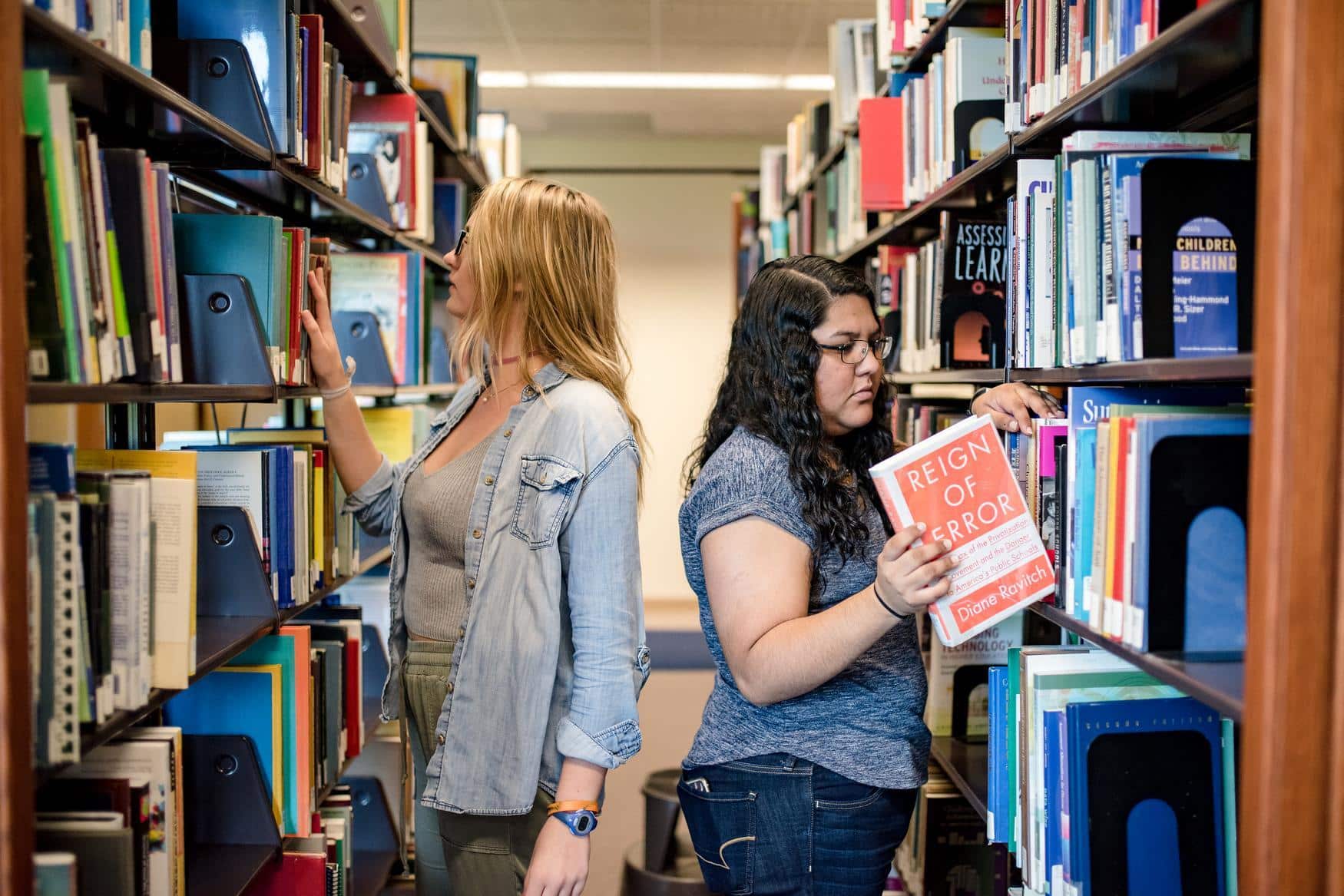
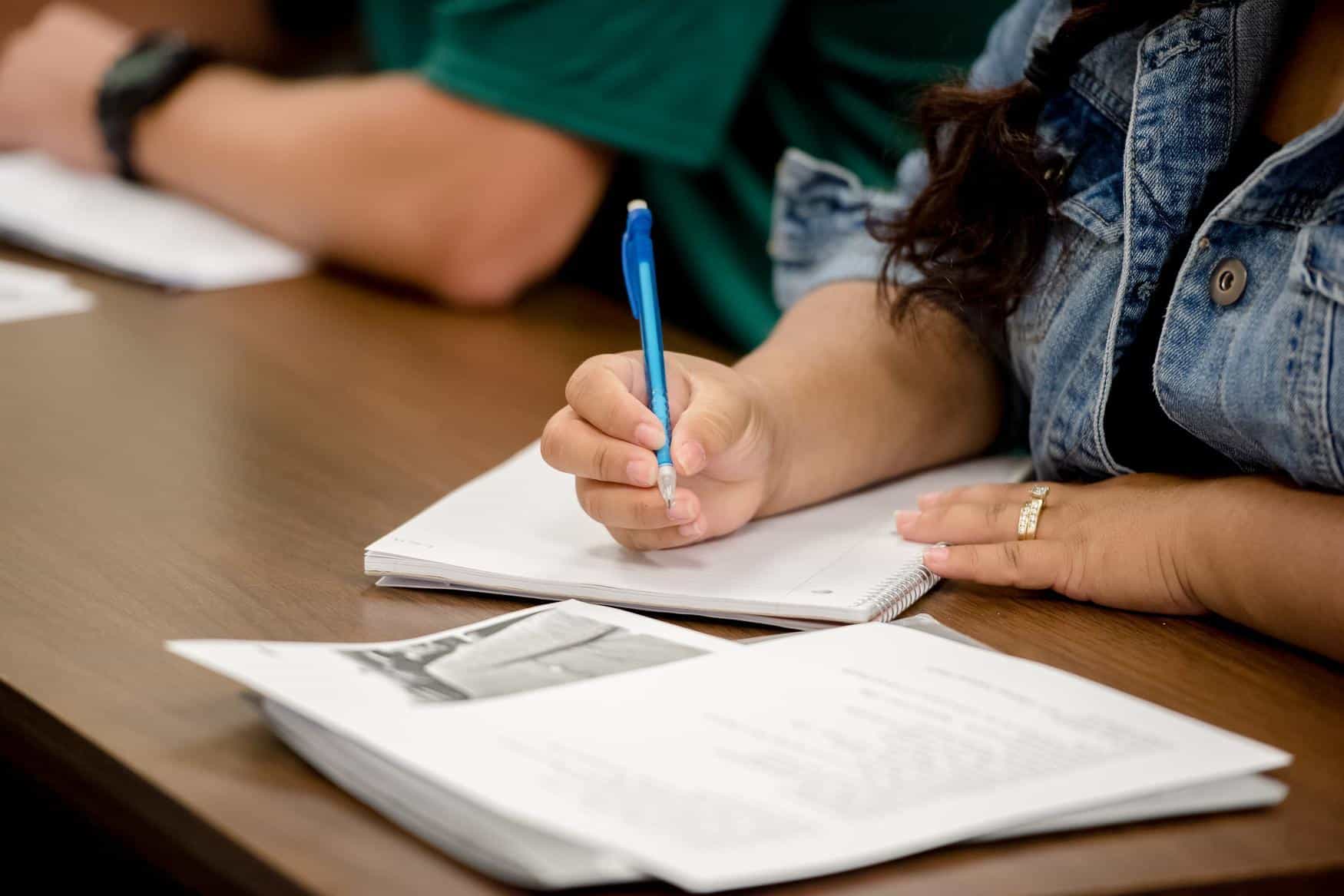
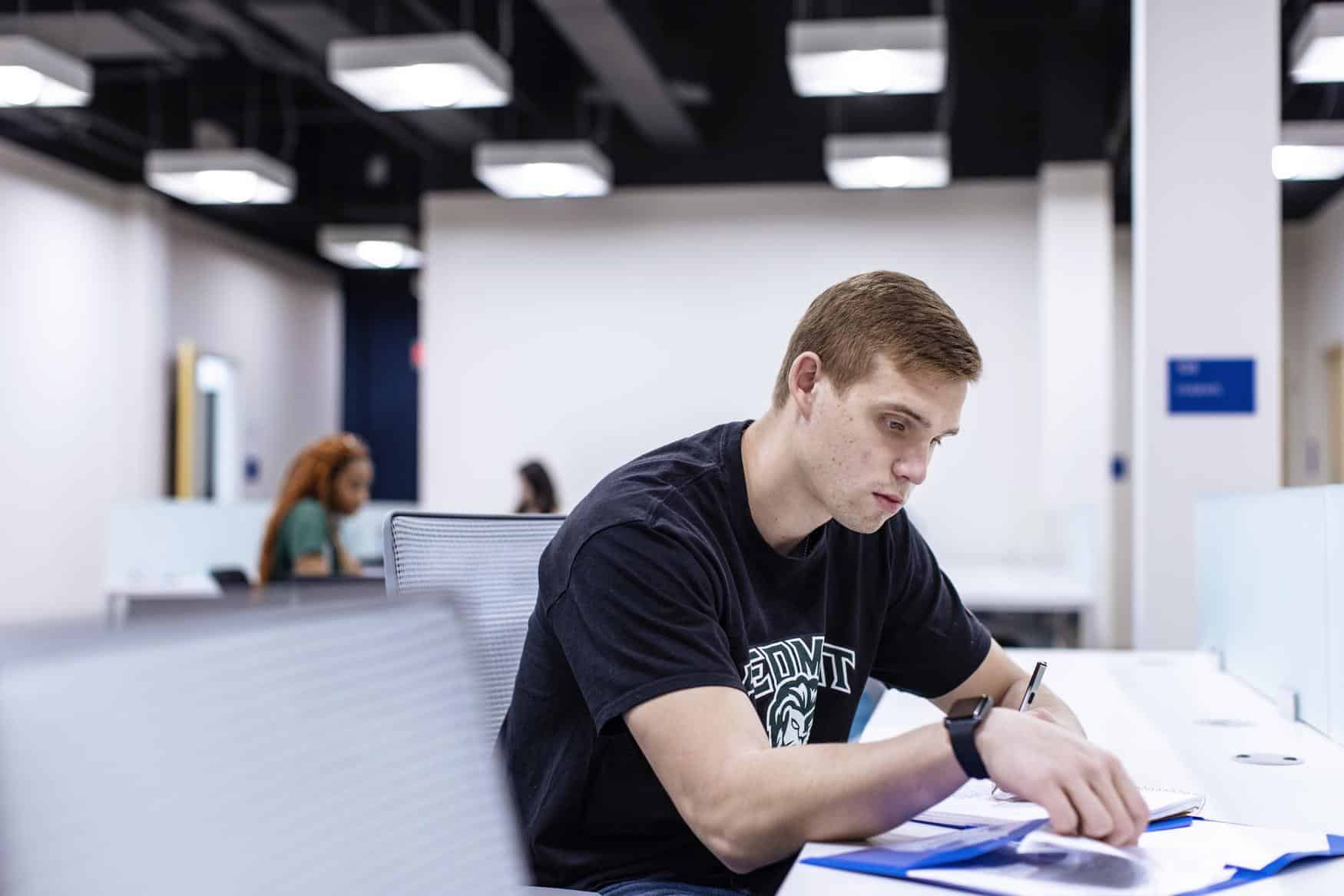
Where do I start?
To begin your journey toward becoming an Secondary Education student at Piedmont University, you can start by applying today! Or, schedule a campus visit and meet with admissions and financial aid advisors, as well as faculty members in education.

